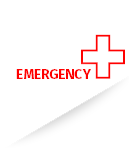Principal Investigator
PD Dr. Dr. Petra Dickmann
Jena University Hospital (JUH)
Department of Anesthesiology and Intensive Care Medicine
Research Area Public Health
In cooperation with
Prof. Dr. André Scherag
Jena University Hospital
Institute for Medical Statistics, Informatics and Data Sciences
Prof. Dr. Rainer Heintzmann
Leibniz-Institute for Photonic Technologies (IPHT), Jena
Prof. Dr. Cornelia Betsch
University of Erfurt
Institute for Psychology
Project period
1 April 2020 – 31 December 2021 (prolonged until 31.12.2021)
Funded by the State Chancellery of Thuringia
Overview
Connected to the pandemic management of federal and state governments, far-reaching measures were taken to control the dynamics of Corona infection outbreaks. These measures should help to gain time to establish concepts, competences and capacities, which allow better coping with the high number of patients and the high pace of accruing cases requiring intensive care.
These measures are not sustainable (comparable to “holding one’s breath”); at the same time, rational criteria as to when which measures can be loosened, without risking an overstrained health care system, are missing.
In this project, three pillars of the pandemic events will be systematically connected:
- Burden of disease,
- Capacities of the health care system, and
- Consequences for society
The research group aims to develop a scientific rationale, which allows systematic balancing of several drivers of the pandemic, the pandemic management and their respective consequences.
Resulting from this approach, concepts for improved understanding of the multifaceted dynamics of the pandemic will be developed, including
- Burden of disease by modelling outbreaks
- Capacities of the health care system using concepts to reduce collateral damage (e.g. crisis concepts for intensive care)
- Consequences for society using concepts of health and risk communication.
These concepts will enable the generation of scientific evidence, which will be the basis for early detection of rising infection rates, faster reaction to outbreaks, smoother coordination and smarter learning from experience (risk communication). Combining these aspects will allow societies improved balancing of disturbances.



